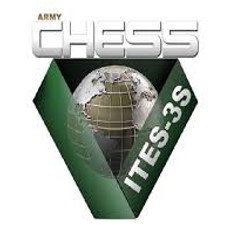As organizations rapidly integrate Artificial Intelligence into every layer of their operations - from predictive analytics in finance to intelligent automation in supply chains - one thing is clear: success with AI is not just a technological endeavor, but a human one. The ability to manage change effectively, intentionally, and compassionately is what separates organizations that realize transformative AI value from those that struggle with disjointed deployments and workforce resistance.
Organizational Change Management (OCM) skills are essential in AI-enabled organizations because AI is not merely a new toolset - it’s a deep, structural shift in how work gets done, how decisions are made, and how humans interact with machines and data. AI demands not just technical readiness but also organizational readiness. OCM professionals bring the strategic insight, communication acumen, and behavioral expertise required to align people, processes, and technology in this new reality.
Ensuring Successful Adoption of AI Solutions
It is often said that AI projects fail not because the technology doesn’t work, but because people don’t use it. A technically flawless AI deployment can still fall flat if employees resist it, misunderstand its purpose, or fail to adapt their workflows. Organizational Change Management skills provide the roadmap for user adoption - from stakeholder analysis and readiness assessments to training programs and performance support tools.
For instance, in a public sector agency that introduced AI for automating case reviews, success hinged on coaching frontline staff who feared that automation meant obsolescence. OCM efforts included targeted communication, hands-on pilot testing, and employee involvement in tool design. The result: accelerated adoption and improved service quality.
Aligning People, Processes, and Technology
AI frequently changes role definitions, reallocates decision rights, and introduces new operational models. OCM skills ensure that these changes are neither ad hoc nor chaotic. Change managers help define new roles such as AI product owners or data stewards, integrate them into existing org structures, and ensure they complement rather than conflict with established responsibilities.
In a global manufacturing company, deploying an AI-driven demand forecasting tool required a fundamental shift in how sales, operations, and procurement collaborated. OCM practitioners facilitated process redesign workshops, established new governance structures, and coordinated leadership alignment sessions. This integration ensured that AI wasn’t operating in a silo - it was embedded within the business fabric.
Building Trust in AI Through Transparency
AI systems, particularly those that involve opaque algorithms, can provoke mistrust and skepticism. If users don’t understand how an AI model works or why it makes certain decisions, they’re unlikely to trust or rely on it. This is especially true in industries like healthcare, education, and financial services, where stakes are high and transparency is paramount.
OCM skills help demystify AI by ensuring clear, consistent communication. They involve stakeholders early in the design phase, co-create use cases with end users, and educate employees on AI’s capabilities and limitations. In one regional bank, transparency sessions about AI-driven credit scoring significantly improved employee comfort levels - and ultimately, customer satisfaction.
Reducing Fear and Resistance
Job displacement is one of the most significant concerns associated with AI implementation. Uncertainty around roles, skill relevancy, and future job security can lead to quiet resistance or overt pushback. Organizational Change Management skills help organizations address this head-on - not through platitudes, but through concrete reskilling paths, career development initiatives, and clear articulation of AI’s role as an enabler.
A mid-sized logistics company saw this firsthand when it introduced AI for routing and scheduling. Initially met with anxiety by dispatchers, the company’s OCM team designed a phased rollout with retraining modules, job shadowing for new roles, and one-on-one coaching. The result wasn’t just adoption - it was renewed engagement.
Accelerating the Realization of AI’s Value
AI promises value in speed, insight, and scale - but realizing that value depends on sustained behavioral change. Change managers ensure that organizations don’t just launch AI solutions, but continue to support their usage long after go-live. This includes performance monitoring, user feedback loops, and post-implementation coaching to troubleshoot emerging challenges.
In a national insurance provider, deploying AI for claims adjudication created measurable improvements in speed and accuracy - but only after OCM leaders addressed friction in how frontline adjusters interacted with the new tool. Sustained support and change reinforcement strategies helped embed AI into daily decision-making, unlocking full ROI.
Enabling Agile, Iterative Transformation
AI implementation is rarely linear. It unfolds in iterations - through pilots, proofs of concept, feedback loops, and continuous refinement. Organizational Change Management skills support this agile approach by cultivating adaptability, resilience, and a test-and-learn mindset across the organization.
In an energy utility company piloting AI for predictive maintenance, OCM professionals led retrospective sessions after each sprint, incorporating technician feedback into model refinements. This iterative engagement built momentum and increased trust in the evolving solution.
Strengthening Organizational Culture in a Time of AI
AI doesn’t just change workflows - it challenges cultural norms. Moving from instinct-based to data-driven decisions, shifting from control to collaboration, and embracing experimentation over predictability all require cultural transformation. OCM plays a pivotal role in reshaping norms, aligning leadership behaviors, and reinforcing the values necessary for a digital-first enterprise.
For example, a professional services firm used AI to improve project staffing by predicting resource needs. Initially, managers resisted “algorithmic suggestions.” The OCM team worked with HR and leadership to reposition AI as a decision support tool, not a mandate. Cultural alignment efforts ultimately helped the firm embrace a data-informed culture.
Supporting Governance, Ethics, and Responsible AI
AI raises ethical concerns around bias, privacy, fairness, and accountability. Organizational Change Management ensures these issues aren’t overlooked or delegated solely to IT. OCM professionals convene diverse stakeholders, embed governance protocols, and institutionalize ethical frameworks that reflect the organization’s values.
In a higher education institution adopting AI for admissions recommendations, OCM experts facilitated cross-functional reviews of model inputs, engaged community stakeholders, and ensured that equity concerns were addressed early. This proactive governance helped preserve institutional trust.
Conclusion: Human-Centered Change for AI Success
In an AI-enabled organization, success isn’t just about models and algorithms - it’s about people. Organizational Change Management skills are essential for guiding the human side of digital transformation. They ensure that technology adoption is accompanied by cultural readiness, emotional intelligence, and strategic alignment.
As AI transforms the tools we use, OCM ensures it also transforms how we work - deliberately, inclusively, and sustainably. In a world increasingly shaped by algorithms, it is human-centered change that unlocks the full promise of AI.
To build and enhance OCM skills for the AI era for you and your team, take a look at Inteq’s Organizational Change Management training course.
* * * * *
Master of Chaos Newsletter (try it)
Subscribe to my blog | Visit our Knowledge Hub
Visit my YouTube Channel | Connect with me on LinkedIn
Check out our Business Analysis Training Courses & Consulting Services




















